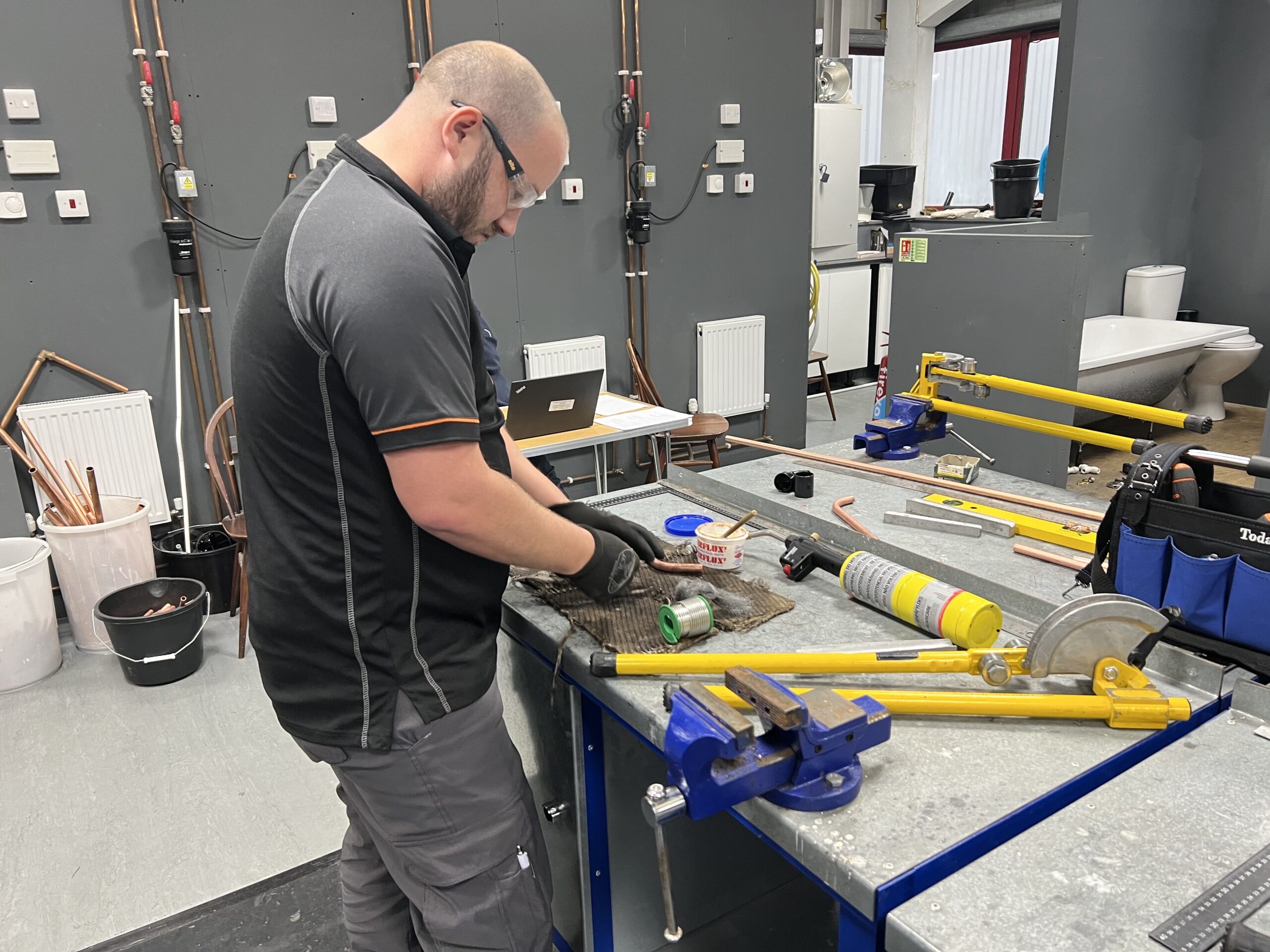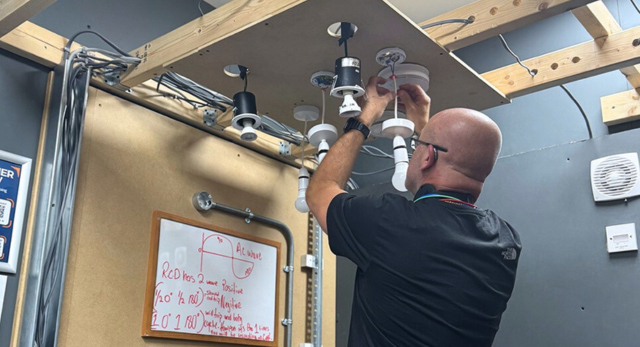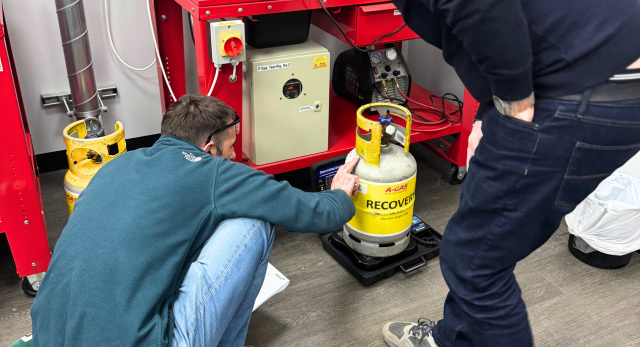In the past we’ve interviewed several Logic4training candidates about their decision to go into a trade school rather than university and they seldom have regrets.
The advantages include not being saddled with large debts and the fact that they are able to start earning good salaries as soon as they are qualified. On top of this, jobs in the skilled trades are easy to come by as the UK is short of workers with vocational qualifications.
One newly qualified plumber, Ryan Scott, talked about how, at twenty-two, he had been able to buy his own house and described how a couple of his uni friends had ended up working in Tesco’s. That’s not what they’d bargained for.
Vocational courses cost less
Recent figures show that most students finish their degrees with student loans in excess of £45,000 to be paid back once they earn more than £27,295 a year. This is a considerable amount of debt to be starting out with. The Guardian newspaper reported recently that ‘anyone who started university between 2011 and 2022 is now paying 7.6% interest on what they borrowed, meaning that almost all will see their loans go up by more than they repay each year.’ Hardly an attractive proposition.
The costs of most higher-level vocational courses tend to be cheaper than university degrees, (£6,000 a year as opposed to up to £9,250) and they take less time to complete. A full-time degree course is a minimum of 3 years and a full-time Higher-Level Diploma (HND) is 2 years. There are part-time options available, for those who choose to fund their study whist working.
Vocational qualifications are also available at private training centres, for those who are looking to complete their courses within a shorter time-frame. This is something that many career changers find appealing as they are able to complete their qualifications sooner and then find work.
What if you didn’t do very well in school?
Many of the candidates we have spoken to over the years haven’t enjoyed school and were put off going to university or taking their studies any further. Most find themselves in jobs that aren’t fulfilling, but often, a few years down the line when they want to make a change, they discover they flourish in vocational training. Learning at a vocational college or private training centre is very different from school. There’s a focus on equipping candidates for work, not academic study.
You don’t need to have any formal qualifications to take an NVQ (in fact Levels 1 and 2 are the equivalent of GCSE). You can build your skills and work your way up starting with basic vocational qualifications.
Most diploma courses require GCSE passes in English and Maths but speak to your vocational trainer as there are often ways round fulfilling these requirements with additional courses to help you with cores skills.
If you’ve a couple of A Levels, you might consider taking an HND which is equivalent to the second year of a degree course.
Benefits of vocational training
Financial independence: Financial independence is a great motivator. It’s useful to compare the salaries of entry level tradespeople with those of graduates starting out on their entry level careers. Save the Student website, goes into detail, looking at various careers. Those working in the Arts can start out somewhere between £18k – £23k, teachers start out on salaries of £30k and those in engineering and computer science can earn closer to £30k.
For those working in the skilled trades, according to Indeed, the job website, entry level salaries are as follows: electricians approx. £38k, plumbers approx. £36.5k, gas engineers approx. £32.5K and heat pump installers between £30-£35k.
Job security: If you’re paying for training you want to be sure you’ll be able to get a good job at the end of if. The skilled trades score well on this front too. The UK is experiencing a skills shortage at the moment, so electricians, plumbers and heating engineers are in high demand. Take heat pump installers for instance. To meet current government targets of 600,000 heat pump installations a year by 2028, we going to require a huge workforce of trained heat pump engineers.
We hope this article has been interesting and helpful in working out where you study and where you go in the future. If you’d like to have a chat to us about your plans, please get in touch. We’re always happy to hear from those who are exploring a future in the skilled trades.









